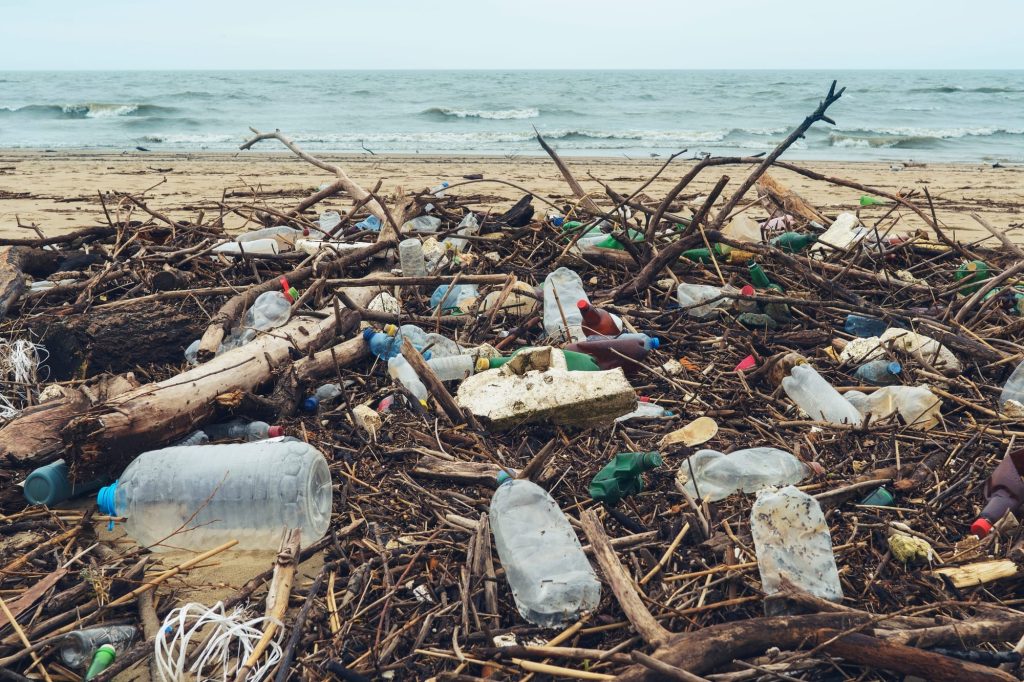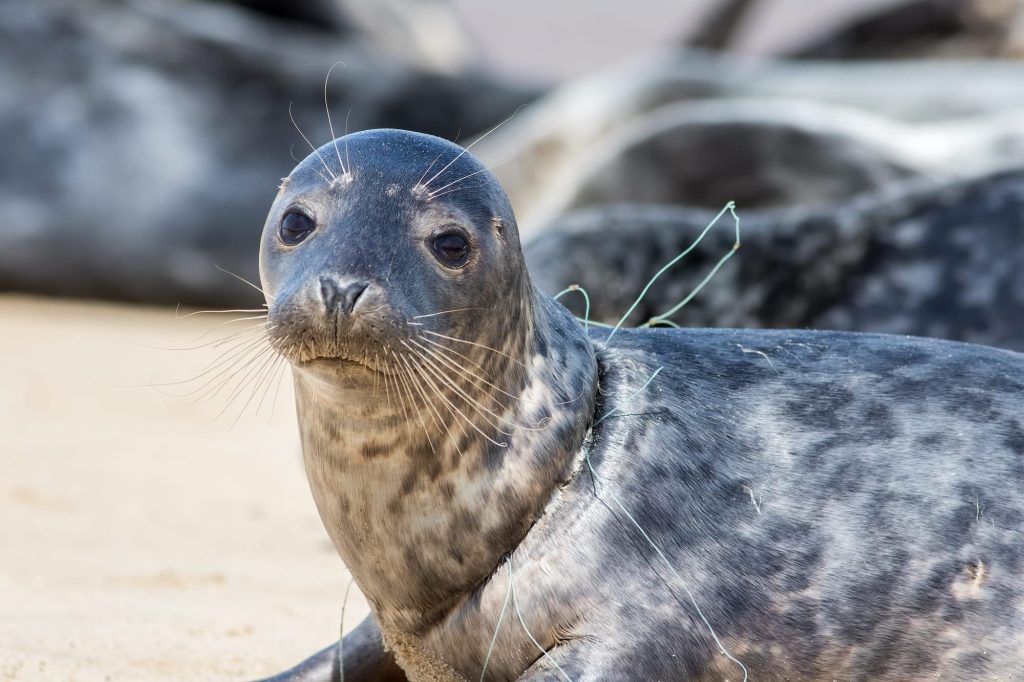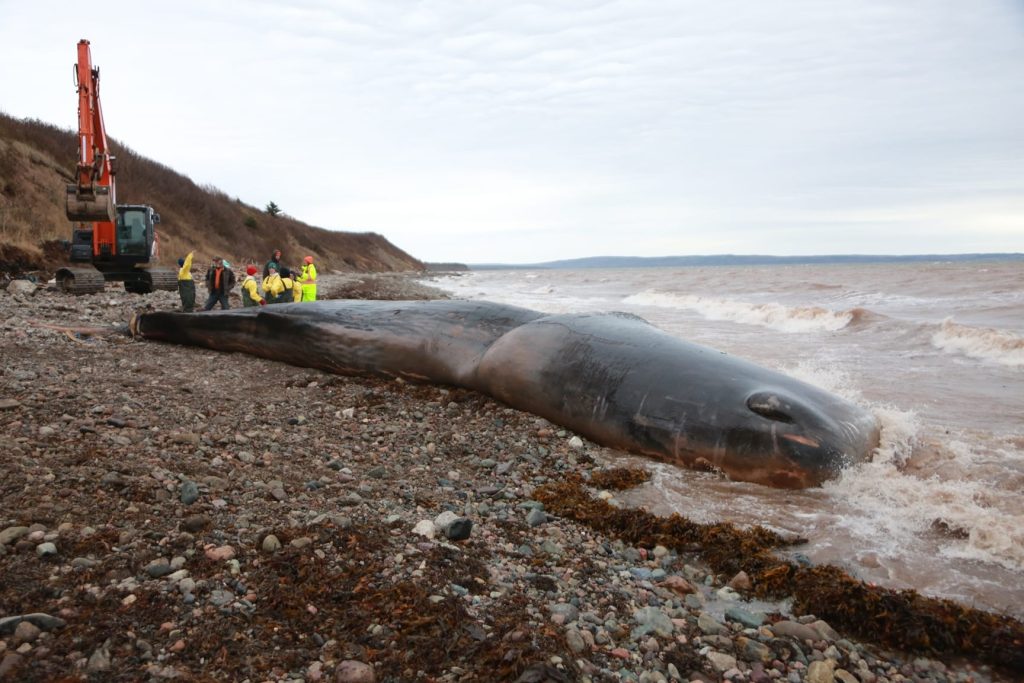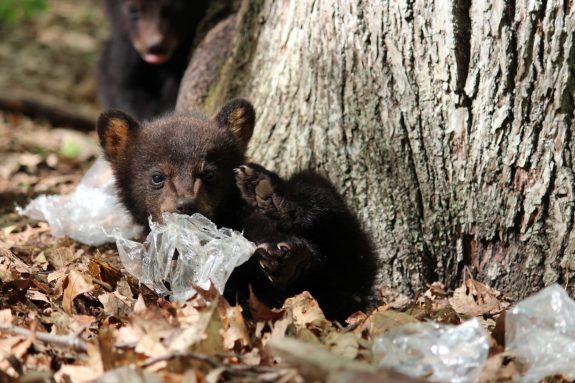Animal Justice has been granted intervenor status in a troubling lawsuit challenging Canada’s progressive new ban on single-use plastics.
Unfortunately, Big Plastic is fighting back hard against the ban. A group called the “Responsible Plastic Use Coalition”, made up of large manufacturers and distributors, along with Imperial Oil, Dow Chemical Canada, and Nova Chemical, are suing the federal government over its decision to designate plastics as “toxic” under the Canadian Environmental Protection Act. Since listing “plastic manufactured items” as toxic, the federal government has introduced regulations to ban certain single-use plastic products.
Plastic pollution wreaks havoc on wildlife and our ecosystems, and Animal Justice will be in court to put animals’ interests at the forefront of the case, and make sure the judge understands the harm that plastic pollution causes to animals.
The single-use plastics ban was made as a first step in the government’s effort to reach zero plastic waste in Canada by 2030, and will eliminate an estimated 1.3 million tonnes of plastic waste over a 10-year period.
The new law covers:
- Checkout bags
- Cutlery
- Takeout ware with plastics that are hard to recycle
- Plastic aluminum can ring carriers
- Stir sticks
- Straws (excluding flexible and bendable straws)
Making and importing these single-use plastics became illegal on December 20, 2022, and selling them will be prohibited by December 2023.

How Plastic Pollution Harms Animals
Every year in Canada, 3 million tonnes of plastic waste is thrown away, and only 9% of plastic is recycled. The rest ends up in landfills, waste-to-energy facilities, and the environment.
Nearly all plastics ever made still exist in some form because they cannot biodegrade. Instead, plastic breaks down into smaller and smaller pieces that are often eaten by animals on land and in the water.
When animals consume plastic, their digestive tracts can become blocked, their organs can get pierced, and they can also choke and starve to death. Microplastics, which are tiny plastic particles less than five millimetres long, can accumulate in the body, and cause liver and cell damage, as well as disruptions to reproductive systems.
Animals on land and in the water can also become trapped, entangled, or injured in plastic in the environment—often leading to a slow and painful death.

It’s estimated that a whopping 10,000 tonnes of plastic enters the Great Lakes each year, and about 11 million tonnes of plastic from land ends up in the ocean each year, which is expected to triple in less than 20 years.
Canada has the longest coastline in the world and is home to one quarter of the world’s freshwater. We, as a country, have a huge responsibility to protect our waters and wildlife from plastic pollution.
Single-Use Plastic Ban Doesn’t Go Far Enough
The single-use plastic ban, while a good start, doesn’t include some of the most common plastic items found in the environment, such as take out coffee cups and lids. Every year in Canada, 1.6 billion cups made with plastic are thrown away.
Plastic cutlery made with more durable materials aren’t covered by the ban, on the assumption that they will be reused. But these items are still often treated as single-use by customers, and end up being tossed out.
Under the new regulations, it’s estimated that only three percent of plastic waste will be covered, or about 150,000 tonnes annually.
The ban also doesn’t address plastic waste from the fishing industry. Lost and discarded fishing gear, also known as “ghost gear”, makes up the vast majority of large plastic pollution in the ocean, and can entangle and kill animals for decades. An estimated 640,000 tonnes of ghost gear enters the ocean every year.
In November 2022, a sperm whale was found dead and emaciated on a beach in Nova Scotia with 150 kg of fishing gear in his stomach. Experts said he starved to death after ingesting fishing gear.

Plastic pollution is a huge threat to animals, and while there’s much more that needs to be done, Canada’s single-use plastic ban is an important first step. Please contact the Minister of Environment and Climate Change Steven Guilbeault to thank him for taking action against plastic pollution, and to encourage the government to expand the ban to include more harmful plastic products that so often end up in the environment.




